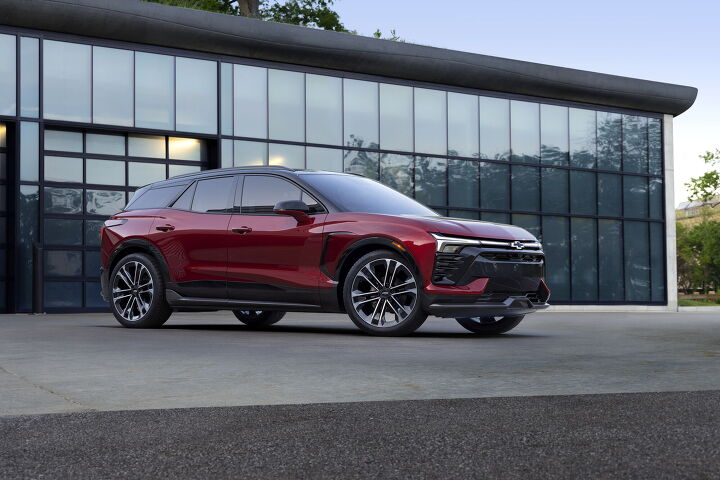The New Chevy Blazer EV Has Stumbled Twice in Recent Tests - Hard

General Motors’ fortunes are tied heavily to its new Ultium EV technology. It underpins several existing and upcoming models and is the basis of the automaker’s EV efforts, costing billions of dollars and years of development. A few Ultium-based models have already gone on sale without too many issues, including the GMC Hummer EV and Cadillac Lyriq, but the most recent release hasn’t gone so smoothly. The Chevrolet Blazer EV has recently failed in two high-profile tests by automotive publications, raising questions about its electrical system and software.
Kevin Williams at InsideEVs experienced several issues on his road trip from Ohio to North Carolina, leaving him stranded at a rural charging station. Now, Edmunds is reporting a similar experience, with its almost-new long-term Blazer EV test vehicle recording dozens of errors and weeks in the dealer repair department.
While Williams’ road trip ended with a stranded journalist and a vehicle that couldn’t complete its intended journey, Edmunds’ at least ended in its home area in Southern California. The publication saw eight warning lights during its trip between Los Angeles and San Diego.
Unlike Williams, Edmunds got a 12-volt system error, but both experienced issues charging. Both experiences also unraveled over a short period, but Edmunds recorded 23 issues requiring fixes. The publication sent its SUV to the dealer, where it’s been for more than two weeks so far, requiring support from a GM technician and surrounding stores.
The list of faults is long and won’t be all that interesting for many readers, but there are a few issues to address. The body and drive motor control modules malfunctioned, leaving “lost communication” messages with some windows, while the head-up display experienced a “general electrical malfunction.”
To be fair, this is not only a brand-new vehicle but a brand-new vehicle in a somewhat untested format for GM. People often advise against buying first-generation mobile phones and electronic devices because of the complexity involved with developing an all-new product, so, hopefully, General Motors and Chevy can address these issues with an over-the-air software update to smooth the landing a bit.
[Image: Chevrolet]
Become a TTAC insider. Get the latest news, features, TTAC takes, and everything else that gets to the truth about cars first by subscribing to our newsletter.

Chris grew up in, under, and around cars, but took the long way around to becoming an automotive writer. After a career in technology consulting and a trip through business school, Chris began writing about the automotive industry as a way to reconnect with his passion and get behind the wheel of a new car every week. He focuses on taking complex industry stories and making them digestible by any reader. Just don’t expect him to stay away from high-mileage Porsches.
More by Chris Teague
Latest Car Reviews
Read moreLatest Product Reviews
Read moreRecent Comments
- ToolGuy No Hurricane, no sale. 😉
- TheEndlessEnigma They are cancelling it because it doesn't cost enough. Can't have customers select less expensive model options.
- ToolGuy The visual effect of black paint and black wheels and minimal brightwork is very visually distinctive; I wonder why more people haven't thought of it.
- Oberkanone Cost to develop a new vehicle is north of $400 Million and requires years to do so. From the sidelines the investment of less than $40 Million for Fisker IP would appear to be good value. Counterpoint, automotive is a terrible segment to invest.
- SCE to AUX I wouldn't take it for free; you could spend as much in the first year's repairs.


































Comments
Join the conversation
This is just in. GM is delaying the Blazer EV due to software issues. We probably won't see the Blazer EV in showrooms until the spring. GM is making Tesla look like Toyota when it comes to reliability. Toyota is getting the last laugh at GM's expense.
Read the new release below.
https://www.msn.com/en-us/autos/news/gm-stops-selling-the-chevy-blazer-ev-to-deal-with-software-quality-issues/ar-AA1lWUOK
Nice looking car, too bad. They should have held it back longer and worked all the bugs out. It looks so good I would actually consider one, but...